This medium telephoto lens for Sony NEX
range offers a similar view angle which is equivalent to a 75mm lens used on a
35mm camera, which is very ideal for portraits shooting. The bright maximum
aperture is f/1.8, and it also owns an Optical Stabilization, silent focusing
and just costs for $255.
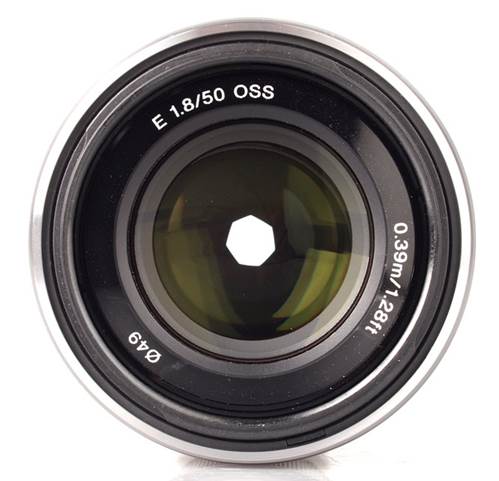
The
Sony NEX 50mm f/1.8 OSS
Handling and features
The lens barrel is made of high quality
plastic with a chrome coat covering the out surface and its mount is made of
metal. This is not a heavy lens as it just weighs 202g. This characteristic
makes it a perfect partner for the Sony NEX-5R used for testing.
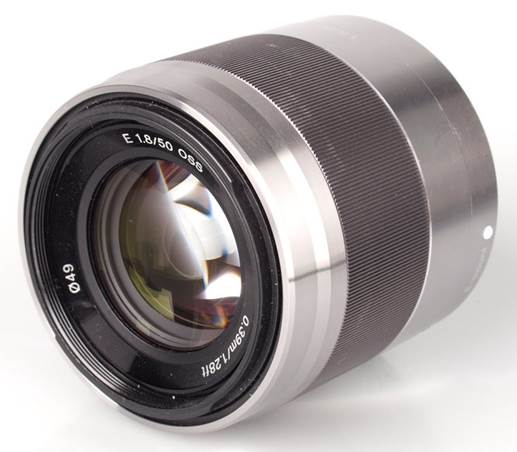
The
product image
The autofocus process is very quick and
precise, which brings its users confidence feeling when using the lens at fast
apertures, even in low light conditions. Its manual focus ring works smoothly
and is well damped, making the manual control of focus very convenient and
pleasant. The minimum focus is 39cm from the sensor plane, which is such a
typical characteristic for a lens with such focal length.
As the focus process is done internally,
the filter ring does not rotate or extend. This makes the lens so ideal to use
with a graduated polarizing filter. As standard, a deep circular hood is given
with the lens and it works as a shade keeper for the lens.
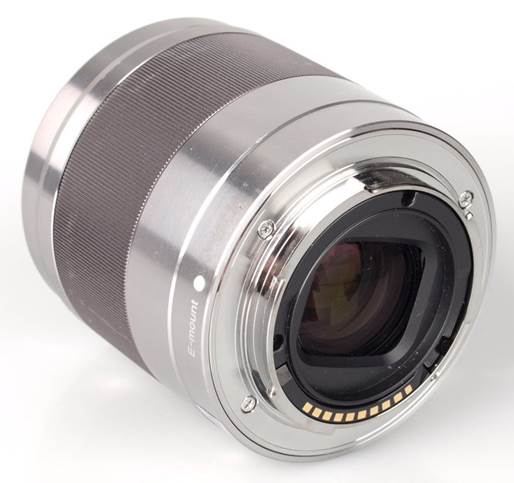
Its
manual focus ring works smoothly and is well damped
This 50mm lens
is considered as the fastest lens on any system to include optical
stabilization currently. With enough attention, you will recognize that the
time for the optical stabilization to work is proper and tight hand held would
produce images around half the time with the shutter speed of 1/10 second.
Performance
At f/1.8, the center of the frame owns a
very good sharpness although the clarity towards the edges of the frame does
not have that good result, as it just reach the fairly good level. Stopping
down would somehow improves the sharpness across the whole frame, although the
edges still cannot achieve good level of clarity until the lens is stopped down
to f/4. Keeping stopping down to f/5.6 would produce excellent sharpness
towards edges of the frame with magnificent result in the center.
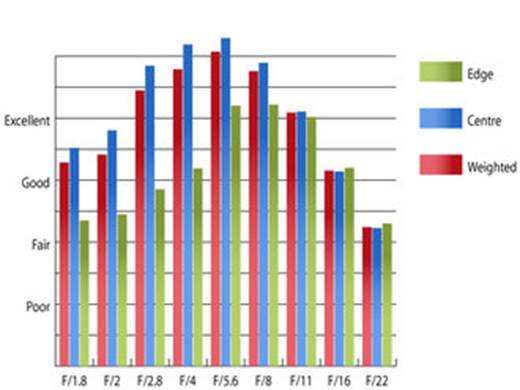
Chromatic
aberration test
How
to read our charts
The blue column shows the figures of the
frame’s center at different apertures. The green ones represent the edge’s
readings. Their averages would give us the red weighted column
The scale on the left hand side is an
indicator showing the real image resolution. The higher the column, the better
the lens performs.
For this review, we tested the lens on a
Sony NEX-5R using Imatest.
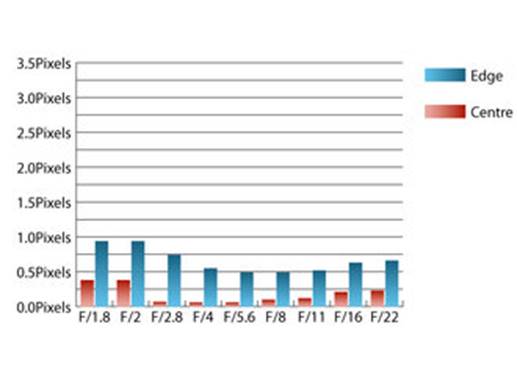
Evaluating
the image’s sharpness
Chromatic aberration indicates the lens’
inability to focus on the sensor or blurring all of the visible light’s color at
a particular point of the lens. High the chromatic aberration is equivalent to
a noticeable fringing and a halo effect around the sharp edges of the pictures.
However, these can be fixed thanks to software.
Apochromatic lenses features special lens
elements (aspheric, extra-low dispersion etc), so it is able to reduce those
problems. Therefore they are usually very costly.
For this review, we tested the lens on a
Sony NEX-5R using Imatest.
The lens is capable of controlling the
falloff of illumination towards the edges very well for such fast aperture
lens. The corners are 1.08 stops darker than that at the center at f/1.8, and
visually uniform illumination will be possible when the aperture stopped down
to f/2.8 or more.
There is the appearance of moderate levels
of pincushion distortion, which raises many issues during the normal picture
shooting process. If absolute straight lines are the first and foremost
important things, then the 1.76% pincushion distortion would be quite easy to
be fixed as the whole frame shows a uniform distortion pattern.
The hood of the lens fulfills its mission
wonderfully as it prevent the lens from being exposed to unrelated light that
can cause flare issues. However, if the hood is absent, this lens can still be
able to resist the flare and produce good contrast, even when shooting into the
light.
Sample
photos

Sample
photos
Value
This lens price fluctuates in the range of
$255 and $360 at the time this review is written. Even being in the first
class, this lens is still worth its price as it offers wonderful features and
excellent optical performance.
Verdicts
This lens with a reasonable price, ability
to create sharp images, contrast photos, a optical stabilization and fast
maximum aperture, Sony has just created a safe belt for them.
The only drawback of this product is the
high level of chromatic aberration towards the edges of the frame at fast
apertures, although this flaw would be easily dismissed if we take into account
all the positive attributes of this lens
Advantages
·
Good built quality
·
Sharpness
·
Light weight
·
Optical stabilization
Disadvantages
·
CA level towards the edges of the frame at high
speed aperture
Specifications
|
General
·
Lens Mounts: Sony E Mount
Lens
·
Focal Length: 50mm
·
Angle of View: 32°
·
Max Aperture: f/1.8
·
Min Aperture: f/22
·
Filter Size: 49mm
·
35mm equivalent: 85mm
·
Internal focusing: Yes
Focusing
·
Min Focus: 39cm
·
Stabilization: Yes
Construction
·
Blades: 7
·
Elements: 9
·
Groups: 8
Box Contents
·
Box Contents: Front and rear caps, lens hood
Dimensions
·
Weight: 202g
·
Height: 62mm
|